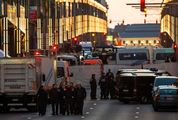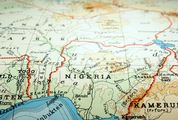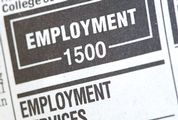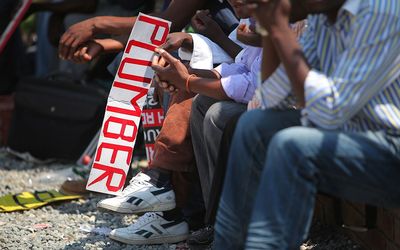A NATIONAL minimum wage that is out of sync with South African realities could lead to job losses among the most vulnerable workers, who such a wage seeks to protect, a new report by the Institute for Justice and Reconciliation (IJR) has warned.
The report, Radical Reconciliation: Critical choices for Economic Justice, was released in Cape Town on Wednesday.
IJR executive director Fanie du Toit said that rising global inequality had seen more state intervention in wage regulation, especially in Europe and Latin America.
It is against this backdrop that the debate on a national minimum wage to replace sectoral determinations has gained traction in SA.
The report shows that in developing countries where a national minimum wage had been set, the youth, women, low-skilled workers and employees in small firms were often the biggest losers.
In SA, minimum wages are set at sectoral level.
Setting the country’s national minimum at R5,000 a month would, in real terms, double wages in sectors including clothes manufacturing, whose pay is regulated under the Labour Relations Act, and domestic work, which is regulated under the Basic Conditions of Employment Act.
The R7,000 and R12,500 thresholds would more than treble these existing sectoral wages.
The Congress of South African Trade Unions (Cosatu) has been pushing hard for the introduction of a minimum wage of between R4,125 and R5,276.
The union federation is likely to get its wish later this year after African National Congress (ANC) general secretary Gwede Mantashe recently said that a national minimum wage would be introduced, even though an agreement still had to be finalised on the actual amount.
Cosatu has previously rejected the notion that a minimum wage would lead to job losses, arguing that raising working people’s incomes could complement other economic and industrial policies by stimulating demand.
In his budget speech last week, Finance Minister Pravin Gordhan said that there would be further talks on the minimum wage as part of "responding to appeals from the business sector for greater certainty in policies that affect investment decisions".
The IJR report says that compared to other similar countries, SA’s existing sectoral minimums are either higher than, or in line with, cost-of-living, average wages per capita.
The report notes that SA’s economy is characterised by a high-wage economy, which sees top-tier and skilled workers coining it, while those at the low end earn a pittance. This is a formula for disaster in terms of unemployment, poverty and inequality.
"Country-specific conditions should inform the level of a national minimum wage ... this calls for modest wage levels and low-wage job creation under current low-growth conditions.
"Further expansion of social assistance and public employment programmes — creating a pro-poor growth path through wage subsidies for the unemployed, targeting specific sectors and regions — and better funded, and effective land reform provide sound alternatives (to a minimum wage) for poverty alleviation," reads the report.
However, Cosatu has said that it would continue to fight for the introduction of a minimum wage despite opposition by "big business".



















Change: -1.54%
Change: -1.49%
Change: -2.02%
Change: -0.73%
Change: -4.01%
Data supplied by Profile Data
Change: -0.11%
Change: -0.20%
Change: -1.54%
Change: 0.00%
Change: -0.44%
Data supplied by Profile Data
Change: 0.85%
Change: 0.22%
Change: 0.57%
Change: 0.74%
Change: 0.00%
Data supplied by Profile Data
Change: -2.07%
Change: -3.72%
Change: -3.72%
Change: -3.48%
Change: -2.00%
Data supplied by Profile Data